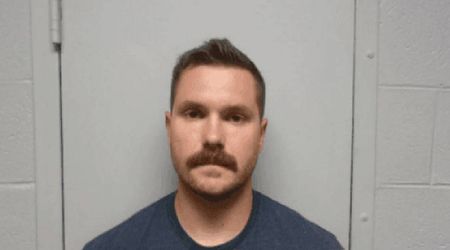Elijah McClain death: Two paramedics who injected Colorado man with ketamine found guilty of criminally negligent homicide

AURORA, COLORADO: On Friday, December 22, two paramedics, Peter Cichuniec and Jeremy Cooper, who pled not guilty to the charges, were found guilty of criminally negligent homicide in the 2019 death of Elijah McClain, 23, who died after being subdued by the police and injected with ketamine.
Cichuniec was also convicted of a second-degree unlawful administration of drugs assault charge assault and found not guilty of second-degree assault resulting in bodily injury. On the other hand, Cooper was acquitted of similar charges.
The two paramedics and three police officers had all been charged with crimes in connection with McClain's death.
Elijah McClain was subdued by the police after a 911 call
On August 24, 2019, McClain was stopped while out for a walk. He was restrained by several officers and rendered unconscious until paramedics arrived to administer 500 mg of ketamine without checking his vitals.
Nationwide indignation followed after the 23-year-old's death as he was seen on the body camera footage pleading for his life in his last moments.
In court, paramedics' attorneys attempted to place the blame for McClain's death on the police, even though the officers' attorneys had contended in two previous trials that the paramedics' use of the potent sedative ketamine was the cause.
The incident reportedly took place after a motorist passing McClain reported seeing someone who was "sketchy" and "might be a good person or a bad person" to 911.
McClain was seen wearing a ski mask, which his mother subsequently claimed he used to stay warm because he was anemic, but he was not in danger and that he did not see any weapons, The Guardian reported.
In the body-cam video, McClain was seen being aggressively approached by the officers, who then told him he was "being suspicious" before shoving him to the ground and putting a chokehold on him. He cried out, "I can't breathe," over and over, vomited, and passed out before awakening.
Prosecutors claim that when Cichuniec and Cooper arrived after McClain had been restrained, they witnessed the officers push him to the ground and use force, but they neglected to check on him.
Cooper initially told police, "We’ll just leave him there until the ambulance gets here and we’ll just put him down on the gurney."
Police falsely accused Elijah McClain of being 'on something'
However, after spending about two minutes on the scene, the paramedics came to the pseudoscientific diagnosis of "excited delirium" without speaking with McClain or assessing his vital signs, according to CNN.
This diagnosis has come under heavy criticism in recent years.
The phrase, which isn't recognized by major medical associations and was recently banned in California, implies that some people can acquire "superhuman strength" by consuming certain drugs and is apparently used frequently to defend police killings.
Police on the scene had falsely accused McClain of being "on something" and claimed he had "incredible strength."
As the officers restrained McClain, Cichuniec apparently gave the order for Cooper to inject him with ketamine from the ambulance.
Cooper stated that he gave McClain 500 mg of ketamine, which is roughly 50 mg more than what is advised for a person of McClain's weight, estimating him to be about 200 pounds (90.7 kg).
However, McClain weighed approximately 143 pounds (64 kg), so Cooper's calculation of his size was also drastically off, and at that weight, 325 mg would have been the recommended dosage.
Consequentially, the 23-year-old massage therapist showed signs of an overdose and was rendered unconscious shortly after the injection.
After revising the autopsy, the coroner's office stated that McClain died from "complications of ketamine administration following forcible restraint," contradicting their initial statement that the cause of death was unknown.
In the October first trial, Randy Roedema, one of the Aurora officers, was found guilty of third-degree assault and criminally negligent homicide. Nathan Woodyard, one of the two officers who had initially stopped McClain and put him in a neck hold, was among the two who were found not guilty.
In addition to receiving $200,000 in back pay from his unpaid suspension during the trial, Woodyard was recently reinstated.










